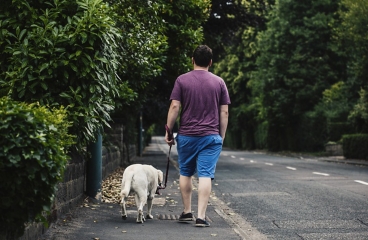Heart Defect Repair Surgery: What to Expect at Home
Your Recovery

Your doctor repaired your heart defect through a cut, called an
incision, in your chest.
You will feel tired and sore for the first few weeks after surgery.
You may have some brief, sharp pains on either side of your chest.
Your chest, shoulders, and upper back may ache. The incision in your
chest may be sore or swollen. These symptoms usually get better
after 4 to 6 weeks.
You may be able to do many of your usual activities after 4 to 6
weeks. But for at least 6 weeks, avoid lifting heavy objects or
doing activities that strain your chest or upper arm muscles.
Some people feel sad or more emotional after this surgery. This can
last for up to a year. Talk with your doctor if your sadness
continues or you have concerns about how you are feeling. Treatment
and other support can help you feel better.
This care sheet gives you a general idea about how long it will take
for you to recover. But each person recovers at a different pace.
Follow the steps below to feel better as quickly as possible.
How can you care for yourself at home?

Activity
|
|
|
|
|
|
|
|
-
Avoid strenuous activities, such as bicycle riding,
jogging, weight lifting, or aerobic exercise, until your
doctor says it is okay.
|
|
|
-
For 3 months, avoid activities that strain your chest or
upper arm muscles. This includes pushing a lawn mower or
vacuum, mopping floors, or swinging a golf club or tennis
racquet.
|
|
|
-
For at least 6 weeks, avoid lifting anything that would
make you strain. This may include a child, heavy grocery
bags and milk containers, a heavy briefcase or backpack,
or cat litter or dog food bags.
|
|
|
|
|
|
|
|
|
|
|
|
|
|
|
|
|
|
|

Diet
|
|
|
|
|
|
|
|
-
You may notice that your bowel movements are not regular
right after your surgery. This is common. Try to avoid
constipation and straining with bowel movements. You may
want to take a fiber supplement every day. If you have not
had a bowel movement after a couple of days, ask your
doctor about taking a mild laxative.
|

Medicines

Incision
care
|
|
|
|
|
-
Wash the area daily with warm, soapy water, and pat it
dry. Other cleaning products, such as hydrogen peroxide,
can make the wound heal more slowly. You may cover the
area with a gauze bandage if it weeps or rubs against
clothing. Change the bandage every day.
|
|
|
|
|
|
|
|
|
|
|
|
-
Do not use any creams, lotions, powders, ointments, or
oils unless your doctor tells you it is okay.
|
Other instructions
|
|
-
Keep track of your weight. Weigh yourself every day at the
same time of day, on the same scale, in the same amount of
clothing. A sudden increase in weight can be a sign of a
problem with your heart. Tell your doctor if you suddenly
gain weight, such as 3 pounds or more in 2 to 3 days.
|
|
|
|
Follow-up care is a key part of your treatment and safety. Be
sure to make and go to all appointments, and call your doctor if you
are having problems. It's also a good idea to know your test results
and keep a list of the medicines you take.
When should you call for help?
 Call 911 anytime you think you may need emergency care.
For example, call if:
Call 911 anytime you think you may need emergency care.
For example, call if:
Call your doctor now or seek immediate medical care if:
Watch closely for any changes in your health, and be sure to contact
your doctor if:
Current as of: October 2, 2023
Content Version: 14.0
Care instructions adapted under license by your healthcare professional. If you have questions about a medical condition or this instruction, always ask your healthcare professional. Healthwise, Incorporated disclaims any warranty or liability for your use of this information.